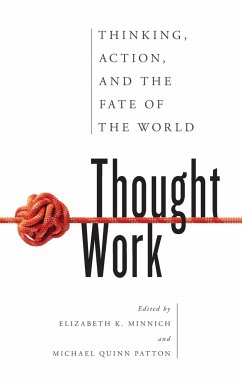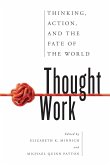Thinking has, for many of us, become as passive as breathing.While it's essential to our very existence, we devote little energy or time to cultivating it. Thought Work:Thinking, Action, and the Fate of the World challenges us to reinstate the restless, complicated activity of thinking as the heart of all education, life, and work. Our underappreciation of careful thought has crippled our ability to sustain a moral, conscience-driven society, and it now falls to each of us to examine the underlying thought processes that guide our every action. Distinguished philosopher Elizabeth K. Minnich and evaluation studies pioneer Michael Quinn Patton gather a diverse cast of thought leaders to respond to this dilemma. From systems and strategic thinking, entrepreneurial thinking, and critical and evaluative thinking, to ethical and philosophical thinking and thinking grounded in and informed by the humanities and community organizing, this volume unpacks vital creative processes and develops schema to support increased thought training in and across individual professions. Together, the contributed thought works of this volume will empower students, scholars, and professionals in any field to reignite their dedicated, thoughtful progress towards long term conscience-driven goals.
Hinweis: Dieser Artikel kann nur an eine deutsche Lieferadresse ausgeliefert werden.
Hinweis: Dieser Artikel kann nur an eine deutsche Lieferadresse ausgeliefert werden.








